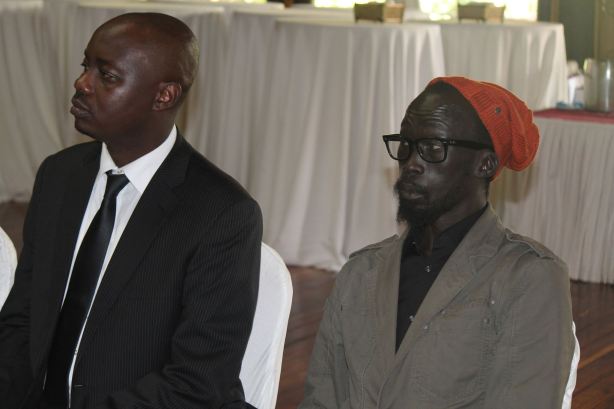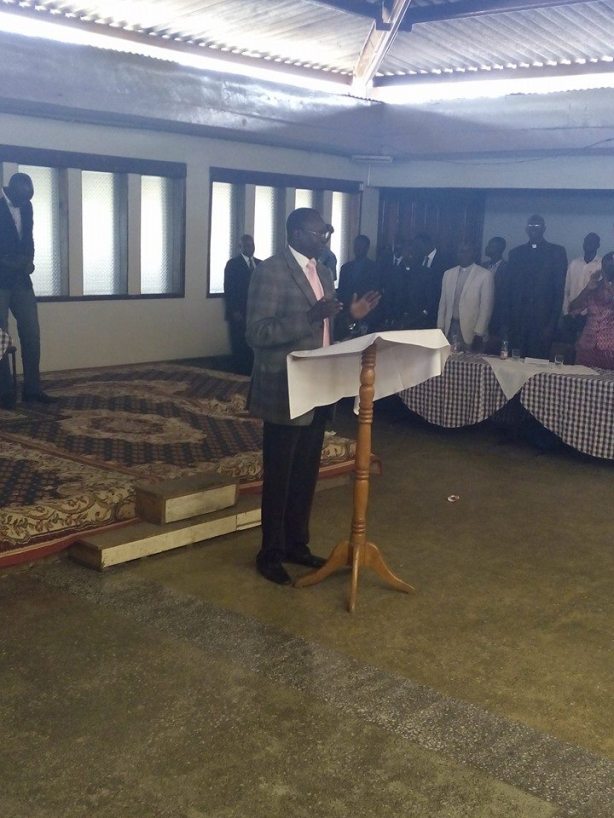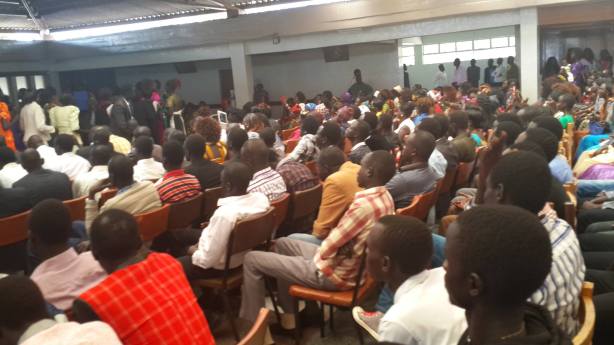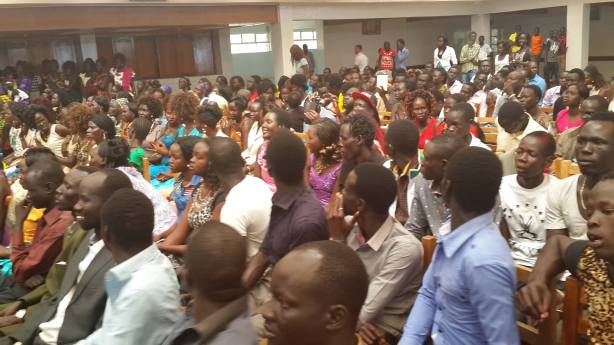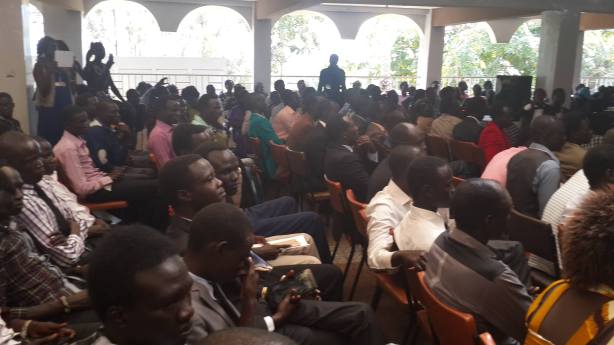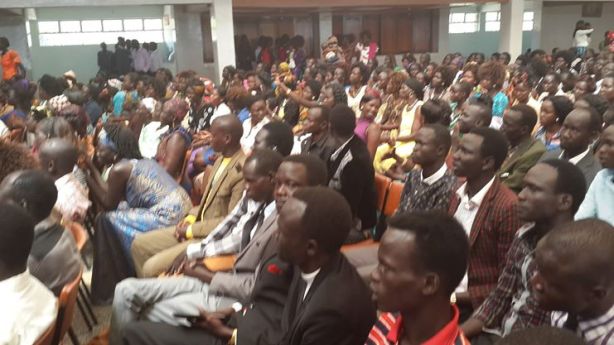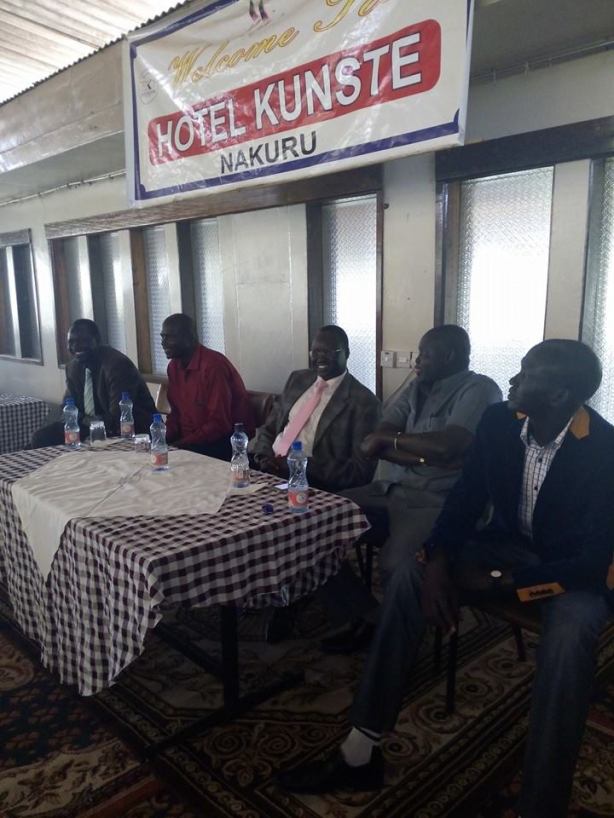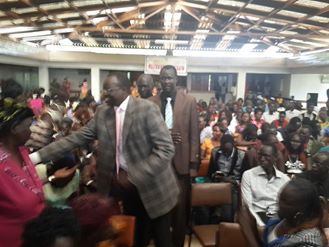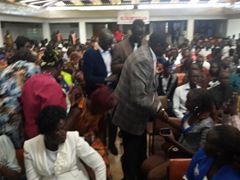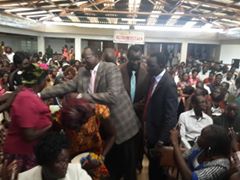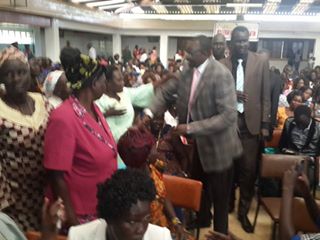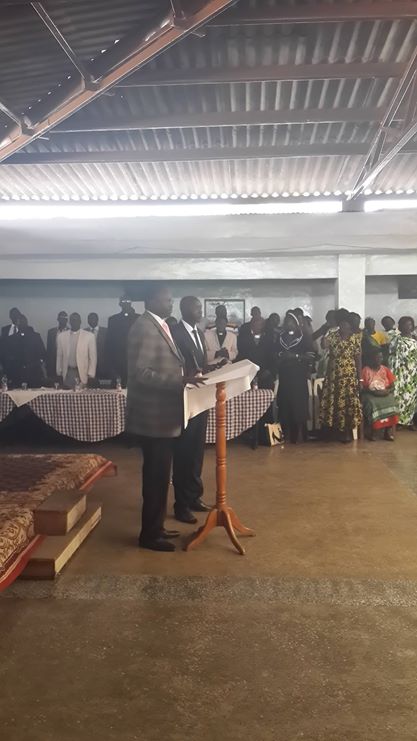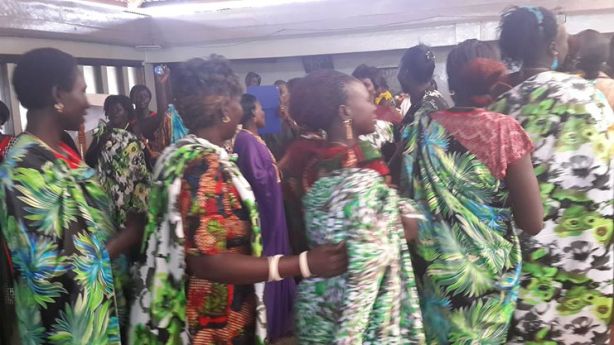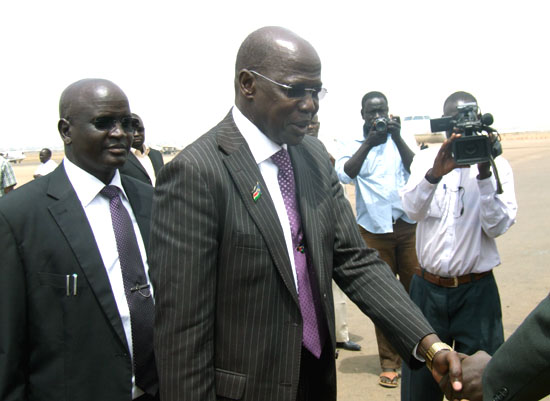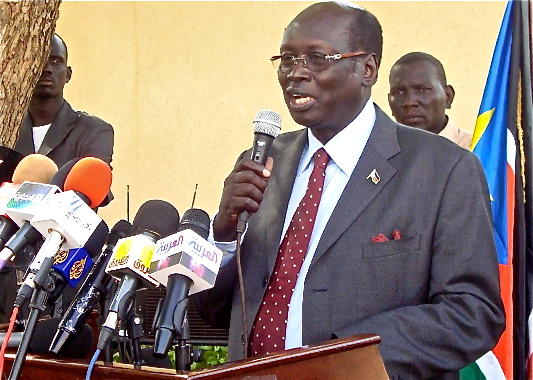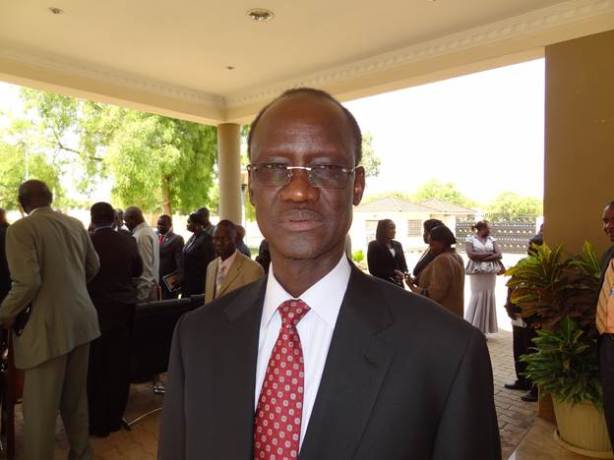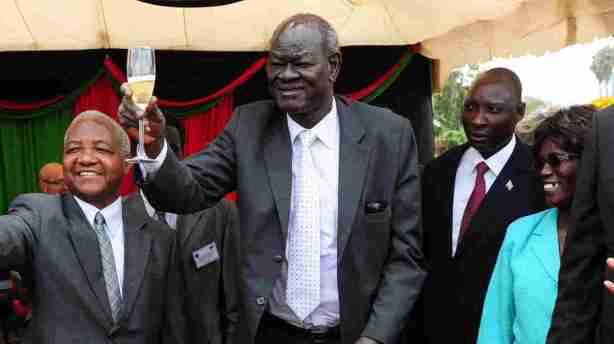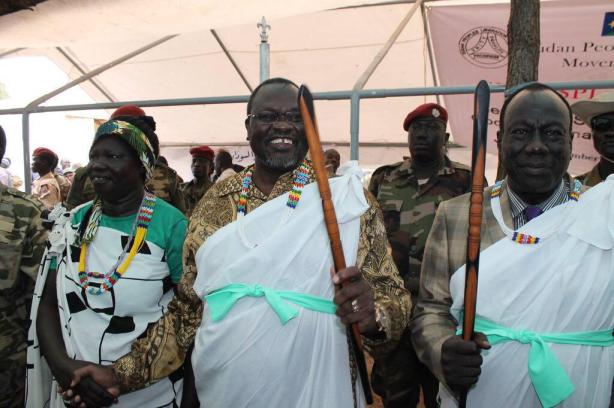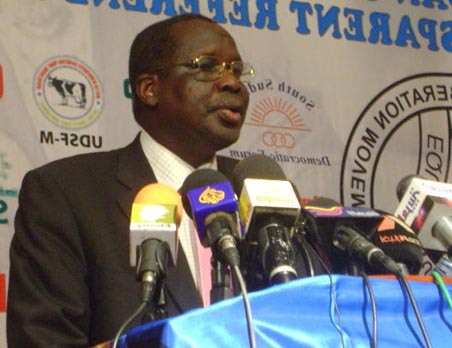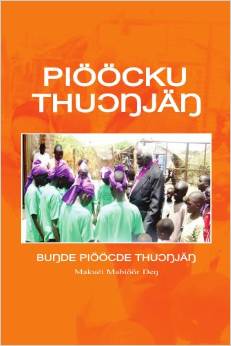Tribute to Fidel Raila Amolo Odinga
By PaanLuel Wel, Juba
January 5, 2015 (SSB) — In the wake of the sudden and mysterious death of Fidel, the first born son of the former prime minister of Kenya, Raila Amolo Oginga, media reports has surfaced that Mabior Garang de Mabior was among the last persons he was with. Fidel had invited Mabior for a night out at Sankara Hotel, where they stayed till 2.30am, Drinking.
Three interesting items here. The hotel is named after one of the best revolutionaries of Africa, Thomas Sankara of Burkina Faso, who was assassinated by his best friend. Secondly, the family of Mabior Garang and Fidel Raila have long relationship dating back to the time of Fidel’s grandfather, Oginga Odinga, helped to secure the release of young John Garang from Kamiti Maximum Security Prison in early 1960s.
Both Garang and Oginga Odinga, plus Thomas Sankara, were self-styled Pan-Africanists. Garang and Sankara died under murky circumstances. Then fate had it that the son of Garang and the grandson of Odinga spent their last time at a hotel named after Thomas Sankara last Saturday. On Sunday morning, Fidel was found dead in his own bedroom, at home, with his wife and one year old son in the next bedroom.
We know not what killed him, and it is very dangerous to speculate at this time since Raila is a high political figure in Kenya and Fidel was destined to inherit that political dynasty.
However, below are two sampled articles attesting to the relationship between the family of Mabior Garang and that of Fidel Odinga.
May his soul rest in peace.
—-
RAILA ODINGA: HOW MY FATHER USED HIS INFLUENCE TO SAVE GARANG FROM EXECUTION,
MAY 4TH 2009
By Mangoa Mosota
Prime Minister Raila Odinga has told of how his late father saved the late Sudanese leader John Garang from execution after he illegally crossed into Kenya in the 1960s. Raila said Jaramogi Oginga Odinga, the first Vice-President and Minister for Home Affairs of independent Kenya, used his influence to save Garang “and his friend who had crossed the border from Ethiopia and reached Moyale on the Kenyan side. They were arrested by Kenyan authorities”.
Raila, who gave the details at a graduation ceremony at a Kisumu-university, said the Sudanese men were jailed at Kamiti Maximum Prison after they were charged in a Marsabit court with being in the country illegally. “They were sentenced by the colonial Government to a jail-term of some few months,” he said.
Raila said Garang told him that a political prisoner, Arthur Ochwada, who was in the same prison, offered to assist Garang. “Ochwada listened to the two young men, and after he was released he informed Jaramogi about their predicament,” Raila recalled Garang telling him at his Nairobi residence a few years before he died.
Yesterday, Raila told an attentive gathering, which included South Sudanese President Salva Kiir, why Garang always referred to him as a brother. Kiir was yesterday conferred with an honorary doctorate degree by Great Lakes University of Kisumu for his struggle for peace in the region.
Raila said Jaramogi called then Uganda President Milton Obote, who offered to allow the detainees to leave Kenya through Uganda. “If they had gone to Khartoum directly, they would have faced instant execution, as they were fighting the Government in newly-launched uprising. But they entered Sudan through Uganda as free men,” divulged the PM. Garang died in a plane crash in Northern Uganda in July 2005.
—-
YOUNG JOHN GARANG ARRESTED IN KENYA
By Oscar Obonyo, The Nation, Aug 28, 2005
Save for the clatter of farm implements in a nearby shamba and the mooing of cows in the neighbourhood, there is relative silence in the homestead. Inside the house, the spacious living room speaks volumes about the colourful political career of the head of the family. The walls are bedecked with black and white framed pictures; images of the man in the company of dignitaries of all shades, including the current and two former presidents of Kenya. These are images of Arthur Aggrey Ochwada in his heyday. All that remains of the good old days are sweet memories of a glorious past. A snake of bitterness has pitched tent in Ochwada’s heart as he ponders his pathos, just when he was about to hit a jackpot; or so he thought. The setting is his home in the small dusty village of Nakhasiko in Funyula constituency of Busia District, about two kilometres away from the Kenya-Uganda border. Days earlier, Ochwada, a former area MP and assistant minister for Natural Resources and Fisheries was awash with excitement.
And the entire village joined in the excitement as they prepared to welcome one of Africa’s greatest sons – Dr John Garang de Mabior. But just before the planned visit, news of Dr Garang’s death on July 30 hit the village like a thunderbolt on August 1. For Ochwada, who was once married to a granddaughter of independent Kenya’s first President, Mzee Jomo Kenyatta, the news was heart-breaking at a more personal level. He was set to host Dr Garang in the village. With his head buried in his palms, Ochwada looks up and shakes his head: “We had just reunited after 42 years and my fortunes seemed to have been back on track when he slipped away. This whole experience is quite painful to me.”
Ochwada was a well-connected politician when he secured the release of a young Garang from Nairobi’s Kamiti Maximum Prison, Nairobi, in 1963. At that time, the young Sudanese faced repatriation and possible execution by the Arab administration. Now a peasant cassava farmer and struggling to make ends meet, Ochwada had certainly pegged his hopes on Dr Garang to get him out of the woods. And to boost his chances, he had planned a hero’s reception for the Sudanese First Vice-President, in a ceremony known as Okhwingisa Mudala among the Abasamia of the Luhyia community, just days before Dr Garang perished in a helicopter crash in Southern Sudan.
“Arrangements were in top gear for his visit and we were all waiting for the big day. I was supposed to proceed with him to Southern Sudan soon after the party, although we had not finalized the details,” Ochwada recalls. A few days after his re-union with Dr. Garang in March, this year, Ochwada’s lifestyle was back ’on course’. And during that short period, the Sudanese leader made arrangements for him to meet President Mwai Kibaki. Rubbing shoulders again with the high and mighty was a great feeling for me. We talked for almost half an hour about our days as youthful politicians, the current political situation and my family,” recalls an enlivened Ochwada, his sorrow momentarily drowning in the delight.
Ochwada and President Kibaki first met in the late 1950s and later worked closely in Kanu as the party’s pioneer national officials. Ochwada, a Kanu founder member, served as vice-treasurer while Mr Kibaki was the national executive officer. But the one man who contributed immensely to Ochwada’s political advancement was Mzee Kenyatta, with whom he had close family ties. The former Samia MP’s second wife, Lucy Nyokabi, was a daughter of Peter Muigai Kenyatta – Mzee’s first-born son. There was also the then Vice-President, Jaramogi Oginga Odinga, the senior government official who directly assisted Ochwada to secure Dr Garang’s release. Jaramogi Odinga was in charge of the Home Affairs docket, under which the Prisons Department falls.
Ochwada’s home, at one time a hotbed of political, diplomatic and social gatherings, hosting such political heavyweights as retired President Moi, is today a deserted place. Born in Busibi location of Samia, the politician marked his 79th birthday two weeks ago. His late father, Mzee Isaiah Odongo, is the elder brother to Vice-President Moody Awori’s late mother, Maria Nakhulo. A husband to five wives (three of whom he separated with), Ochwada is a father of 15 and a grandfather of 16. The politician was educated at Namboboto Primary School and Maseno High School before joining the Army as a non-combat officer. However, after training he opted to teach at his former primary school between 1947 and 1948. “I did not find the village challenging so I quit teaching and left for Nairobi. In the city, I enrolled for correspondence studies in quantity survey,” he says.
Soon he was employed by Taylor Woodrove East Africa Limited, a building and civil engineering firm, earning a monthly salary of Sh 250 which he says was “more than enough”. He then joined the trade union movement and was elected secretary of the Building Workers’ Union. The union later sponsored him to join the prestigious Harvard University in the US, where he studied economics and public relations.
His entry into politics was accidental with a tinge of luck – thanks to Sir Evelyn Baring, the Governor of the Kenya British colony in the 1950s. Following a state of emergency declared by the Governor in 1952 and the subsequent proscription of political parties, political leaders, including Mzee Kenyatta, were arrested, creating a big vacuum. “I was lured by colleagues to join politics and I took up the challenge to keep the fire burning. Here, I came face to face with veteran trade unionists such as Tom Mboya,” he says. After mingling with such great men, he was transformed into a politician. Within a short time, he was deputising for Mr Mboya in 1954 as secretary-general of the Kenya Federation of Registered Trade Unions (present day Cotu).
As the interview peaks, a newspaper vendor rides into the compound and the old man rushes out for a copy of the Daily Nation. And for a while, silence reigns as the interview takes a short break. After about 10 minutes, he is ready to continue: “Sorry about that. You see I am still a leader around this place and I have to keep abreast with what is happening.” When he was area MP, between 1969 and 1974, he was a respected leader. “During the campaign period we were everywhere, yet nowhere. The 1974 campaigns were particularly volatile and although the dreaded GSU were sent to track down my boys, they failed miserably,” he recalls, bursting into laughter.
Ochwada remembers his secret trip to Maralal on July 14,1961 to visit Mzee Kenyatta who had been placed under house arrest by the colonial government. His main mission was to woo Mzee Kenyatta to join Kanu and not the rival Kadu.
At the time, both parties were scrambling to win the support of Mzee Kenyatta, who had already cut out a name as a national hero. “By the end of our day-long talks we had struck a deal. We agreed this would remain a top secret until Mzee’s eventual release,” he told Lifestyle. Ochwada, the trade unionist with comrade-in-struggle Tom Mboya, who was also independent Kenya’s first Constitutional affairs minister. Unfortunately, Mr Mboya learnt of his secret trip and confronted him for details. The situation became tense when he declined to divulge the details and the two engaged in cold war. “This is how he engineered a smear campaign against me that landed me in jail for allegedly misusing union funds,” he claims. According to Ochwada, the flamboyant unionist who later became Minister for Economic Planning and Development, Mr Mboya, was uncomfortable about his close ties with President Kenyatta and may have wanted him locked out of Parliament.
This development turned out to be a blessing in disguise for poor Dr Garang who was wasting away at Kamiti Maximum Prison. While at the Industrial Area Prison in Nairobi, Ochwada fell sick and was taken to Kamiti Prison hospital where he met Garang in May 1963. The youthful Garang who got wind of the presence of a ’senior Kanu politician’ at the hospital, approached Mr Ochwada for help. “I was touched by his plight and, realising that he may have been victimised, I promised to talk to Mr Odinga on my release four months later,” he says. Mr Odinga accordingly ordered Garang’s release and he moved in with Mr Ochwada at his Nairobi West residence for a year before he and Mr Odinga requested Uganda’s President, Dr Milton Obote, to accommodate Dr Garang.
But having served a jail term, Ochwada opted not to immediately vie for a parliamentary seat. In 1963, Kenyatta appointed him to the regional Central Legislative Assembly, an equivalent of present day East Africa Legislative Assembly. The following year in April, he was elected alongside the late Pio Gama Pinto to a special seat in the Senate in a by-election. In 1969, he successfully wrested the Busia Central (now Mr Awori’s Funyula constituency) seat from Mr Habil Kanani. “All that is now history,” he says. Remembering his last days with the late Sudanese People’s Liberation Movement/Army leader, Mr Ochwada narrates how, in March this year, he came to Nairobi in search of the “young man he rescued.”
The “young man” had equally been trying to locate his old friend and it was a memorable reunion when the two met at the SPLM offices in Kileleshwa, Nairobi. “When I returned a few weeks later as arranged, he was out of the country. However, he had left a note with a Mr James Kok at the SPLM offices to be handed over to the Head of Civil Service, Mr Francis Muthaura,” Ochwada says. Unknown to him, Dr Garang had a sweet surprise for him. When Ochwada handed over the letter, a delighted Mr Muthaura immediately declared him a State guest! “I was both confused and elated. A car and chauffeur were at my disposal and I was booked at a five-star hotel where I stayed for two weeks waiting to meet the President,” he says. When the time finally came, he joined Mr Awori’s convoy, whom he repeatedly refers to as “omusiani wa senge” (my aunt’s son), to State House, Nairobi.
Although he declines to disclose what he discussed with the President, the constant smile on his face gives him away. In the meantime, Ochwada continues to lead a quiet life in the village with his two wives, Ruth and Beatrice. He also sits on the management boards of several local institutions. He says, “I am a down to earth man. I also participate in the activities a number of village and inter-clan welfare associations here.”




